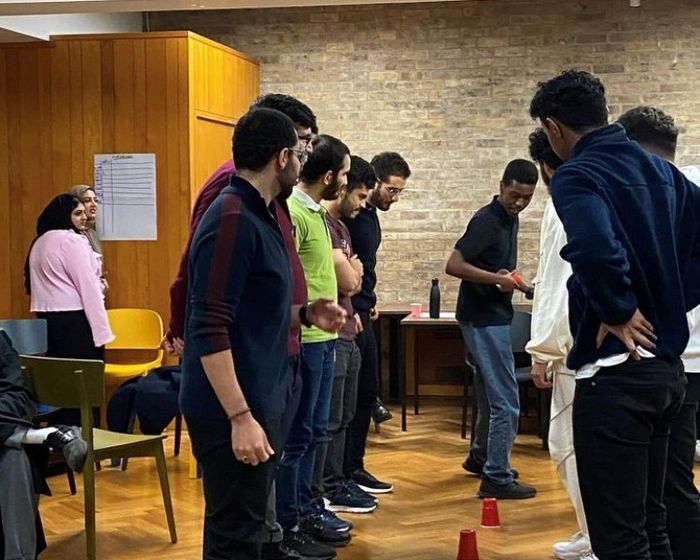‘My heart is still with my daughters in Afghanistan’: Fawzia Koofi’s fight for women’s rights and democratic freedoms
Lois Kildea speaks to the Afghan MP about her journey into politics and the future of Afghanistan

Any nerves I felt prior to conducting my first interview for Varsity were negligible in contrast to those described by Fawzia Koofi, women’s rights activist and the first ever female Deputy Speaker of the Afghan Parliament, when she prepared to negotiate with the Taliban. In 2019, she was one of two women in a group of senior Afghan politicians created to engage in peace talks with the Taliban. Sitting comfortably in an ornate Cambridge Union room, Koofi’s mind flashed back to entering the Moscow hotel room where she faced Taliban representatives for the first time, and then to her husband’s arrest, and women being whipped before her eyes.
In 1975, when Koofi was born, there was no war, though Afghanistan had certain “social restrictions”. “People were not very happy to have a girl [...] My mother wanted to have a boy, but she had a girl. Not that she didn’t like the girl but because as a woman [...] she didn’t want another woman to suffer as much as she suffered.” Koofi’s childhood was characterised by the loss of family members, including her father, an MP who died when she was only four.
Growing up, Koofi wanted to be a doctor, but when the Taliban first took over, they passed edicts banning women’s education and barring them from their workplaces overnight. After the regime fell, Koofi set aside her medical aspirations in favour of a career in politics. She was elected to Parliament in 2005, after having won what she described as an “internal family election” against her brothers who also wanted to become MPs. Koofi’s journey from being a victim of the Taliban to becoming an MP is a reminder that, although politics can be a voluntary activity for those from a position of privilege, it is also a necessary endeavour for the millions who risk having their rights violated and their quality of life diminished.
“The world is only able to handle one crisis at a time”
Being a popular female politician and vocal critic of the Taliban, Koofi has survived multiple assassination attempts and, in August 2020, was shot in the arm. Three core values help Koofi persevere in spite of personal safety risks. The first is equality, and the second, democracy. Koofi stresses that this democracy must be “real”, and that many in the West are wrong to think that Afghan democracy was tried for twenty years and has decisively failed: “It’s actually the world that failed.” Democracy would have worked, she says, if the Afghan people had been “allowed to choose who they want to and [...] empowered enough to do what they want to”.
Koofi’s third core value is education, promoted through daily online calls with female students from across Afghanistan, to whom she and her two daughters also teach classes. Koofi’s students “give [her] the energy in the morning to start [her] day. Otherwise, I feel so distant now, but they give me the feeling that I’m home [...] my heart is still with my daughters in Afghanistan, who are no longer able to go university.”
While Koofi agrees that Afghanistan must be kept free of foreign troops, she criticises the Western withdrawal in 2021. She explains that American negotiations with the Taliban were characterised by a lack of consultation with the Afghan government or civil society groups, who were told:“once there is an intra-Afghan negotiation, we will include you” — as though they were unaffected by the issues under negotiation.
According to Koofi, the greatest problem with the withdrawal process was the lack of safeguards put in place to prevent the Taliban from resurrecting their regime. Joe Biden’s announcement in April 2021 that American troops would leave Afghanistan by September, no matter what, undermined Koofi and her colleagues’ ongoing negotiations with the Taliban. It resulted in“a demoralisation of our troops” and convinced the Taliban that they were “going to win anyway”.
Despite these mistakes, Koofi insists that the international community can remedy the political situation in Afghanistan, through the renewal of a travel ban on Taliban members and the freezing of their assets. She also calls on Muslim countries to respond to their moral obligation to stop the Taliban misrepresenting their religion. Koofi is adamant that until the Taliban are overthrown, the ongoing conflict in Afghanistan threatens not just Asian security, but global security. She laments that “the world is only able to handle one crisis at a time.”
History may appear to have repeated itself with the resurrection of the Taliban’s oppressive regime, but Koofi is adamant that even if the group hasn’t changed, Afghan society has. An entire generation — the Afghans of our generation — have experienced liberty. This is why Koofi is certain that no “exclusive” regime like the Taliban’s can last indefinitely: “People power will always prevail.”
 News / Clare Hall spent over £500k opposing busway 24 December 2025
News / Clare Hall spent over £500k opposing busway 24 December 2025 Comment / The ‘class’ of Cambridge24 December 2025
Comment / The ‘class’ of Cambridge24 December 2025 News / Caius mourns its tree-mendous loss23 December 2025
News / Caius mourns its tree-mendous loss23 December 2025 Comment / League tables do more harm than good26 December 2025
Comment / League tables do more harm than good26 December 2025 News / Girton JCR publishes open letter expressing solidarity with Palestine25 December 2025
News / Girton JCR publishes open letter expressing solidarity with Palestine25 December 2025









